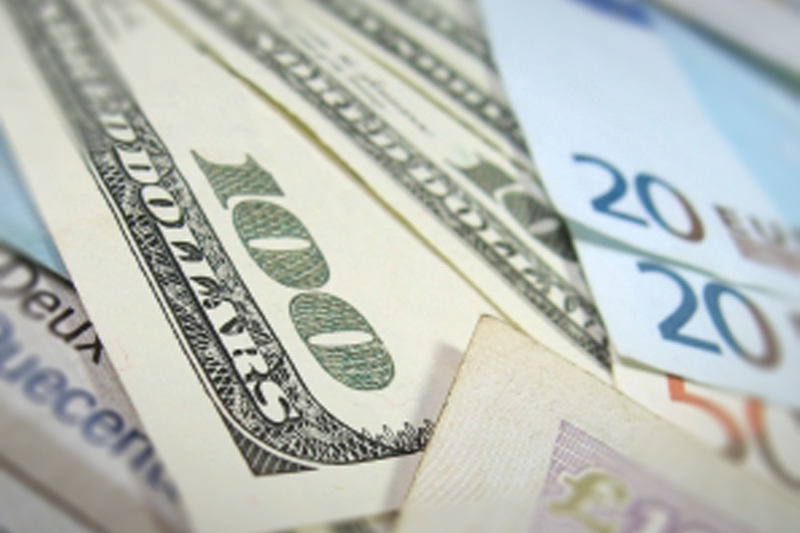Investing.com -- EUR/USD rose moderately on Thursday one day after crashing to three-month low, as currency traders look ahead to Friday's key U.S. jobs report for hints on whether the Federal Open Market Committee could hike interest rates before the end of 2015.
The currency pair traded in a tight range between 1.0834 and 1.0897 before settling at 1.0880, up 0.0016 or 0.15% on the session. The euro remained at its lowest level since late-July, one day after plunging nearly 1% when Federal Reserve chair Janet Yellen told Congress that a rate hike decision could be on the table at its December FOMC meeting. Over the last month of trading, the euro has lost nearly 3% in value against the dollar.
EUR/USD likely gained support at 1.0808, the low from July 20 and was met with resistance at 1.1496, the high from Oct. 15.
For the most part, currency traders were hesitant to make any major moves ahead of Friday's October jobs report from the U.S. Department of Labor's Bureau of Labor Statistics. On Friday morning, the Labor Department is expected to report that nonfarm payrolls increased by 190,000 last month after an extremely soft gain of 142,000 in September. Analysts also expect the unemployment rate to fall 0.1% to 5.0% and average hourly earnings to tick up by 0.2 to 0.2%.
In comments before the House Financial Services Committee on Wednesday, Yellen indicated that while measures of labor underutilization have declined in recent months gains in the labor market have still been lower than the Fed anticipated. The next two U.S. job reports are viewed as critical for policymakers in favor of an imminent rate hike. Yellen reiterated in her testimony that the Federal Open Market Committee will continue to take a data driven approach to its decision on whether to normalize monetary policy.
Nearly a decade has passed since the FOMC last raised its benchmark Federal Funds Rate. The U.S. central bank has left the rate at which banks can borrow on overnight loans at its current level of zero to 0.25% since the height of the Financial Crisis. Over the last week, the FOMC has sent strong signals that it could raise the Federal Funds Rate if it sees continued improvements in the economy and indications that long-term inflation is moving toward its target of 2%.
Also on Thursday, the Bank of England signaled that it could wait well into 2016 before raising interest rates after it held its benchmark rate at 0.5%. In addition, the Bank expects inflation to remain near zero in its latest forecast with only modest increases over the next year. EUR/GBP surged 1.31% to 0.7154, while GBP/USD plunged 1.13% to 1.5209.
The U.S. Dollar Index, which measures the strength of the greenback versus a basket of six other major currencies, gained more than 0.20% on Thursday to an intraday high of 98.24, before settling at 98.07. With the slight gains, the dollar remained near three-month highs.
